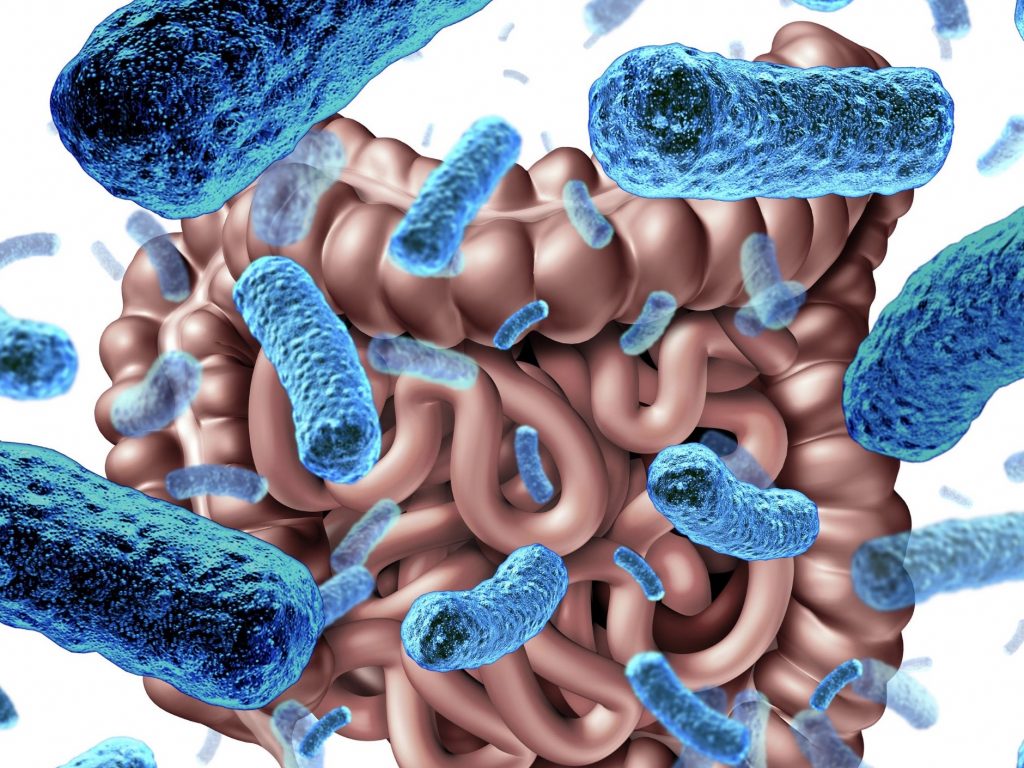“Is bread good for your gut health?”
This is a question I am frequently asked as a Dietitian.
Some people claim that bread is bad for your gut health while others say that going gluten-free or low-carb will heal your gut.
But before you go swapping your bread or cutting it out altogether, let’s have a look at what the science says about bread and gut health.
Gut Health & Our Microbiome
To understand if bread is good for our gut health, we first need to learn about the gut microbiome.
The “gut microbiome” refers to the different microorganisms (and their genes) that live in our digestive tract, aka, your gut.
This includes bacteria, yeasts, viruses, parasites and fungi (1); referred to as microbes. There are 38 trillion microbes in our gut, and they include both good and bad bacteria (2).
Everyone has a unique gut microbiome. And this microbiome is constantly changing.
If we look after the microbes in our gut by feeding them the right foods, plenty of water, exercising, reducing stress and getting enough sleep, we can allow the good bacteria in our gut to multiply and flourish.
The good bacteria in our gut produce compounds called Short Chain Fatty Acids (3). These are extremely important for our health and work in our body to help:
- reduce inflammation
- strengthen our immune system
- improve absorption of important nutrients
- regulate our weight (3,4).
- improve our mood
However, if we don’t look after these good bacteria in our gut, they can decrease or become less diverse. When this happens, the bad bacteria can start to take over and cause inflammation in our body (5), which could lead to:
- poor immunity
- allergies and asthma
- chronic diseases like heart disease, obesity & diabetes
- gut-related conditions such as irritable bowel
- anxiety and depression (6,7).

Where does bread fit in?
What you eat plays a key role in your gut health. In fact what you eat can affect the microbes in your gut within just a few hours of eating! (4,8)
The two key ways you can improve your gut health with food are:
- Consuming probiotic rich foods – this will add to the number and variety of good bacteria in your gut.
- Consuming a variety of plant foods – this will help nourish the good bacteria in your gut and help them to flourish
Plant foods are essential for good gut health because they contain fibre.
Fibre is only found in plant foods and it is the part of the plant that your body can not digest.
This is where bread fits in. Grain bread is a plant food that is high in fibre.
The Australian guidelines recommend we aim for 25-30g of fibre each day and this will support good gut health. Unfortunately most of Australian’s don’t meet this target, consuming an average of only 15g per day. (10)
Grain bread is an easy way to up your fibre intake and help your good gut bugs stay healthy.
Are some bread better than others for gut health?
Yes! As discussed above, grain bread is a great option for good gut health. This is because it has a higher fibre content to nourish your gut bugs.
But this is where it gets interesting!
Now there are breads on the market that also contain resistant starches!
Resistant Starches are a type of fibre that FEEDS the good bacteria in your gut!!
When the good bacteria feed on resistance starches (which are also known as prebiotics), they multiply and flourish, and produce compounds that are beneficial for our gut health and overall health! We need these resistance starches to keep our gut healthy!
Resistant starches are found in legumes, onion, cooked potatoes, green bananas, rice and a special grain developed by the CSIRO called BarleyMax Barley.
Helga’s new Digestive Wellbeing range contains the unique blend of grains and BarleyMax which actually feeds the good bacteria in your gut so they can thrive! Baked with a blend of seeds, grains and the BarleyMax fibre, it delivers fibre to support good gut health.
If you were to ask me which is the best bread for gut health; I would recommend the new Helga’s Digestive Wellbeing range! Click here to view the Helga’s new Digestive Wellbeing range.

Editor’s Note: This article is written in partnership with Helga’s.
References
- Marchesi J.R., Ravel,J. (2015) The Vocabulary of microbiome research: a proposal. Microbiome 3:31 https://microbiomejournal.biomedcentral.com/articles/10.1186/s40168-015-0094-5
- Institute of Medicine (US) Food Forum. The Human Microbiome, Diet, and Health: Workshop Summary. Washington (DC): National Academies Press (US); 2013. 2, Study of the Human Microbiome. Available from: https://www.ncbi.nlm.nih.gov/books/NBK154091/
- Landau, K. 2018. Prebiotic Manual. https://www.upliftfood.com/collections/all/products/uplift-food-prebiotic-manual
- Singh RK, Chang H-W, Yan D, et al. Influence of diet on the gut microbiome and implications for human health. Journal of Translational Medicine. 2017;15:73. doi:10.1186/s12967-017-1175-y.
- Mahesh S. Desai et al. A Dietary Fiber-Deprived Gut Microbiota Degrades the Colonic Mucus Barrier and Enhances Pathogen Susceptibility. Cell, November 2016 DOI: 10.1016/j.cell.2016.10.043
- Jacka et al. A randomised controlled trial of dietary improvement for adults with major depression (the ‘SMILES’ trial). BMC Medicine (2017) 15:23 DOI 10.1186/s12916-017-0791-y
- Clapp M, Aurora N, Herrera L, Bhatia M, Wilen E, Wakefield S. Gut microbiota’s effect on mental health: The gut-brain axis. Clinics and Practice. 2017;7(4):987. doi:10.4081/cp.2017.987.
- Sidhu M, van der Poorten, D. The gut microbiome. Aust Family Phys, 2017; 46(4): 206-11.
- Australian Government National Health and Medical Research Council: Nutrient Reference Values for Australia and New Zealand 2006. https://www.nrv.gov.au/nutrients/dietary-fibre
- Landau, K. 2018. Prebiotic Manual. https://www.upliftfood.com/collections/all/products/uplift-food-prebiotic-manual


Appreciate the references too hun xxx
I am currently eating Helgas wholemeal. I avoid the grain breads/ seeded breads can become a problem with people suffering diverticulitis especially the senior population.
I’d love to know about the glycaemic index (gi) of these breads, including compared to others.
Great post Bec!